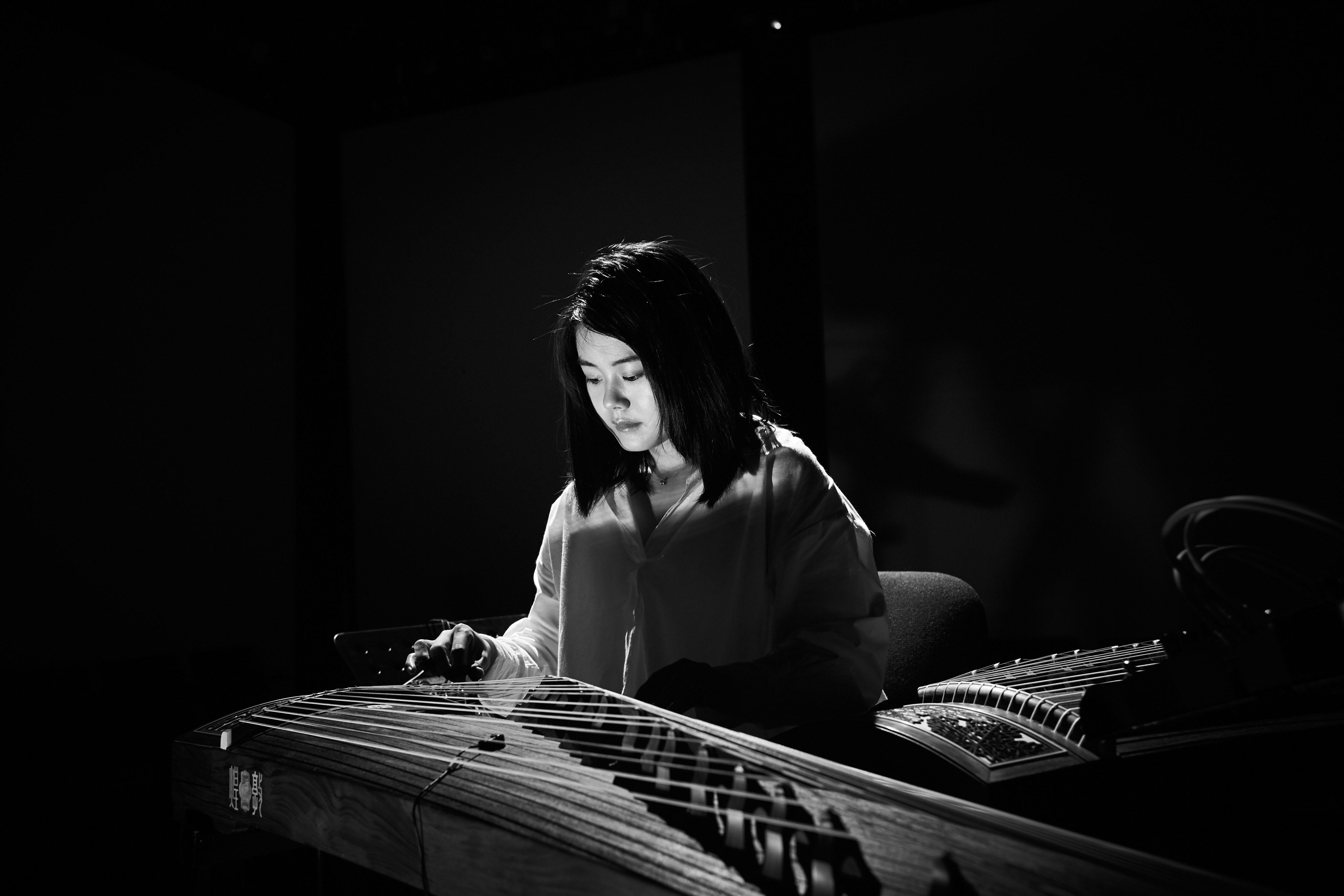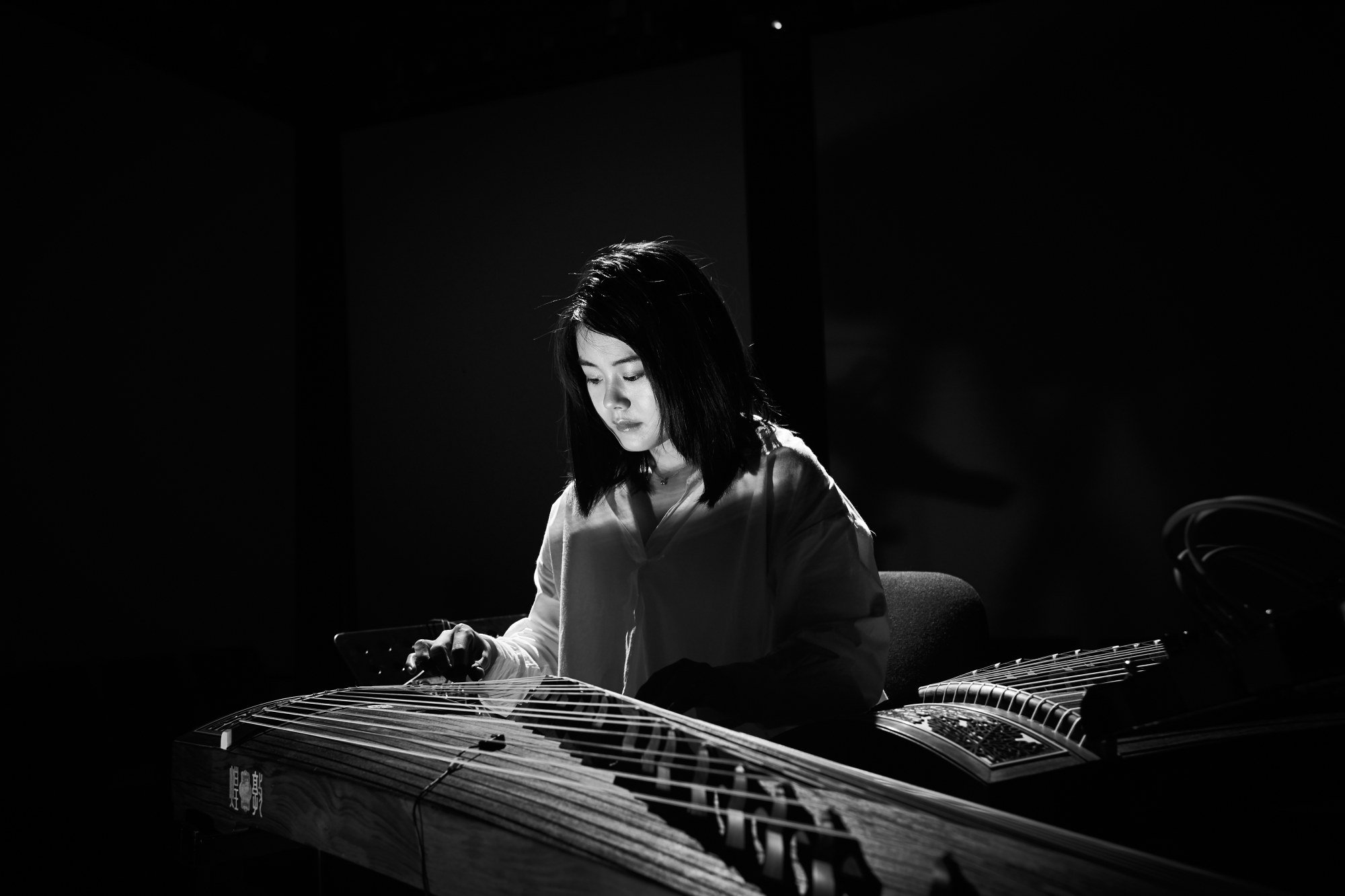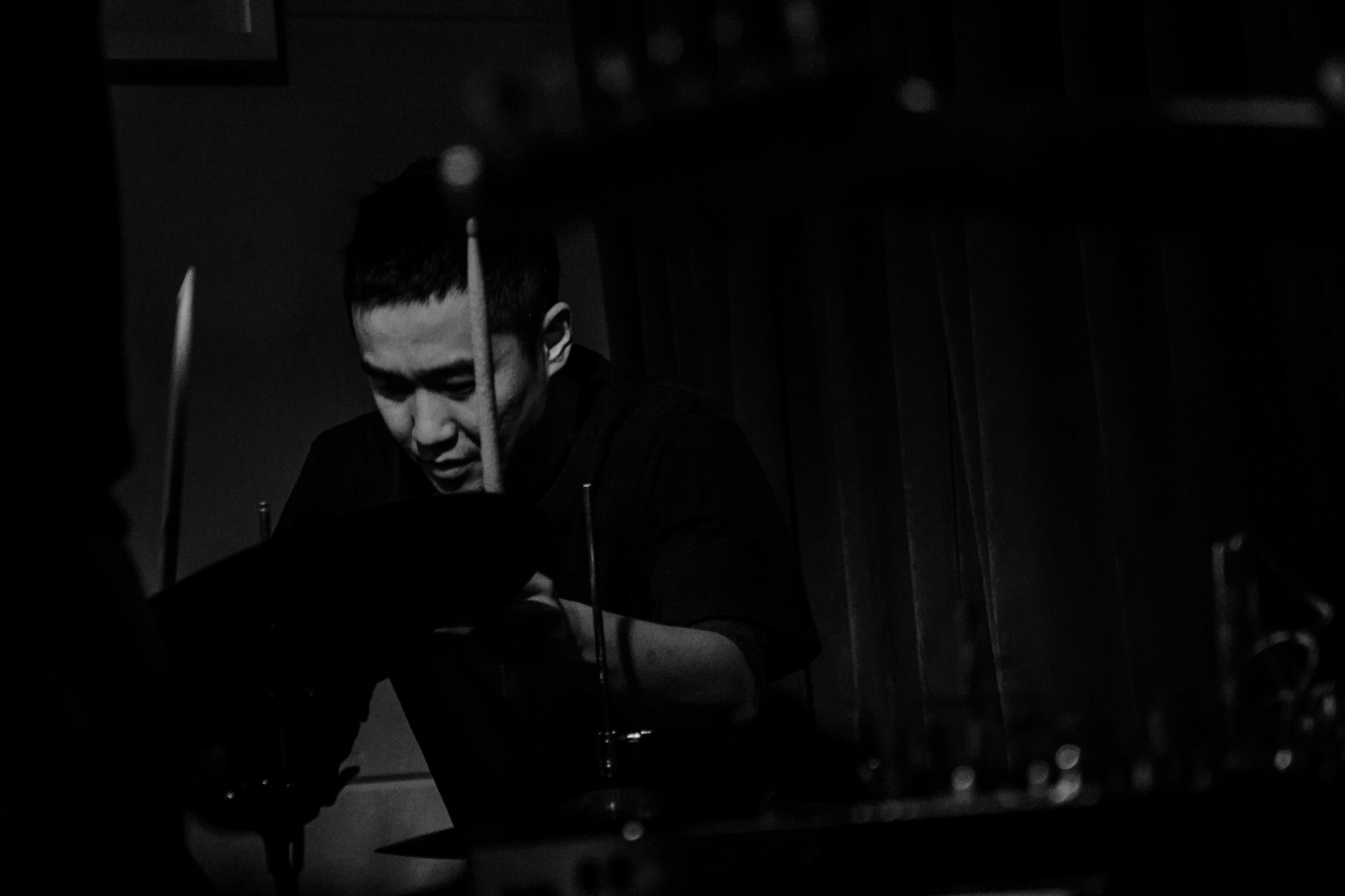
- Like Cui Jian did with rock, experimental musicians in China are mixing traditional Chinese instruments’ sounds into their ambient, computer-driven tracks
Northeast of Guiyang, the capital of China’s Guizhou province, Zunyi is landlocked and remote, otherwise unremarkable had it not played host to the Zunyi Conference in 1935, where Mao Zedong assumed leadership of the Chinese Communist Party during the fabled Long March.
A few “Red” tourism sites commemorate the Chairman’s rise. Other reasons to visit rustic Zunyi include the famous regional liquor Maotai, the surrounding hill country and ethnic minority villages, and the rock formations that dominate the countryside.
The Shuanghedong Cave Network is a local wonder, the longest karst cave in Asia, and only part of the cave complex is open to visitors; most of this 257km (160-mile) subterranean world remains a ghostly place, the dripping of water from stalactites into black rivers, or the occasional flutter of bat wings, the only sounds reverberating through its hollow chambers.
But on December 7, 2022, the walls echoed to a pulsing house beat, accompanied by the distinctive twang of the guzheng (Chinese zither), as music duo Wang Meng + Yu Miao performed their instrumental composition “Mirage” for the cameras.
“The experience was weird, as I’ve never been in a cave like that before,” says guzheng player Yu Miao of the performance, which aired on April 21, 2023 as part of television channel CGTN’s Music Voyage series, which puts notable artists in exotic locations.
“There were these amazingly beautiful rock formations, but it would have been pitch black had they not been illuminated by the production team.”
Chinese culture doesn’t have to be something old, we needn’t relegate the guzheng to a teahouseWang Meng
The Shanghai-based pair are not new to offbeat venues. They’ve made a visual installation for the exterior of Shanghai’s Metro-City shopping mall, and performed at the Shanghai Children’s Theatre.
Even before they’d set foot on a live house stage, the duo debuted their ambient soundscapes with abstract visuals from the counter of a rundown computer repair shop in Shenzhen’s Futian district.
“In 2018, I was asked to create an installation piece for the second Shenzhen Biennale,” says Wang. “Yu Miao and I had just started working together, so I invited her down.”
Although they’d both been active in mainland China’s music scene for a decade before they met, Wang and Yu came from opposite sides of the stage curtain.
Wang is an oil painter by training, who studied visual communication design at university in Guangzhou before building a name for himself creating visual backdrops for touring pop and rock acts.

Yu graduated from the Central Conservatory of Music in Beijing before shaking off the “boring tradition” that had defined her formal education, and aligning herself with the underground music community in Beijing.
“If you retune the guzheng, and wire it to guitar effects pedals, you can play just about any kind of music,” Yu says of how she has adapted the 21-string instrument that has been played in China for 2,000 years.
By 2018, Yu was an established fixture on the capital circuit, collaborating with a dizzying cast of musicians and ranging from jazz sessions with drummer and experimental noise artist Deng Boyu to improvising over the beats of DJ L+R Wang Lu in a techno club. It was during a gig with the latter that she met Wang Meng.
“I was in Beijing for some meetings with clients,” says Wang of their first encounter, “and went to a club in Chaoyang district the night Yu Miao was playing.”
Soon after, Yu visited Wang in his Shanghai studio, where the pair jammed – Wang producing ambient sounds from his computer while Yu plucked out a melody on the guzheng.
Although one was accomplished, the other self-taught, Yu recognised that Wang’s minimalist soundscapes complemented her compositions, while the images he conjured from his laptop gave a visual dimension to their sonic output.
Yu then settled in Shanghai so she and Wang could work together more intimately. The result was Both, their first album, released in 2020.
From the first track, “Changweiyan”, listeners can hear the centuries being bridged – a deep pulsing bass and machine noise allude to the heavy industry that has driven China’s rise over the past four decades, before a guzheng soaked in reverb makes a belated entrance, its melody discernible only halfway through the song, sombre and frail, like a Tang dynasty poem. It is unnerving, yet intensely beautiful.

Wang explains: “What we wanted to express is how different our life is from past times; we use mobile phones, drink Coca Cola and go to parties so we should use music to tell today’s story. Chinese culture doesn’t have to be something old, we needn’t relegate the guzheng to a teahouse.
“Our culture is alive and well in family relationships and the language we speak. But our lifestyles have completely changed, everyone lives in tall glass buildings and owns smartphones; so why shouldn’t music reflect this reality?”
The blueprint for Wang Meng + Yu Miao’s approach lies in the 1980s, a decade during which China transitioned from the baggy blue Mao uniforms to American blue jeans.

Although he didn’t know it at the time, the man who led the charge was a trumpet player from the Beijing Symphony Orchestra named Cui Jian who, in 1986, strapped on a guitar and performed his song “Nothing To My Name” at the Beijing Workers’ Stadium, and changed the face of Chinese music overnight.
Cui and his contemporaries in Beijing’s nascent yaogun (rock) scene had been inspired by cassettes smuggled into China from Hong Kong. By blending styles such as reggae and rap, and fusing elements from China’s rich folk and classical musical traditions, these artists made music that defied easy categorisation.
Cui employed a guzheng player on his second album, Rock n Roll on the New Long March; Black Panther frontman turned bohemian solo artist Dou Wei often played a bamboo flute; and self-styled punk pioneer He Yong recruited his father to strum a snakeskin banjo on his album Garbage Dump, as the yaoguners explored what “rock with Chinese characteristics” could be.
More experimental musicians emerged on the fringes of China’s rock and alternative scene in the early 1990s – artists more indebted to left-field visionaries such as Pierre Schaeffer or John Cage than, say, Mick Jagger or Bruce Springsteen.

Avant-garde “sound artists” would perform wherever they could, from warehouses to galleries, employing sound processors, acoustic instruments and foot pedals to challenge the boundaries and logic of traditional song-based music.
Some notable figures emerged on the scene, from Dickson Dee in Hong Kong, who founded the Noise Asia record label, to psychedelic noise guitarist Li Jianhong, who curated the first 2pi Experimental Music Festival in Hangzhou in 2003.
Yet for everyday people navigating their way through a fast-changing society, experimental music remained out of earshot, the niche interest of a few jazz freaks and electro geeks operating out of art district lofts.
Before the Covid-19 pandemic hit, genre-bending artists were garnering broader interest among educated urbanites tired of television talent-show anthems and old rock songs that no longer resonated with their high-rise, hi-tech lifestyles.
In Beijing, venues such as DDC, Jianghu and Yue Space broadened their rosters beyond the traditional alt-rock offerings that had been the capital’s soundtrack since Cui’s day, showcasing artists that had hitherto been limited to performing in peripheral art villages.
Music is about documenting my life, how I lived at a particular time, what I was thinking, who I knew and how I felt.Yu Miao
Some 2,000 kilometres south of the capital, in Shenzhen, Hunan native Tu Fei, who’d arrived as the singer of rock band Rubber Man in the early 2000s, emerged as something of an avant-garde music evangelist.
Tu spread the gospel via his radio show, Walking Ears, and his indie record store, Old Heaven Books. He’s also the founder of the Tomorrow Festival, which showcases a staggering range of left-field musicians.
Tu endeavours to nurture talent, as the manager of industrial-noise pioneer Mamer from Xinjiang and via his indie record label, which has released a number of experimental recordings to date, including Deng Boyu’s debut album, Wild Air Waves, in 2012.

“Tu Fei influenced me a great deal,” says Deng. “I’d already discovered folk and jazz before we met but he introduced me to far stranger music, stuff that I was completely ignorant of.”
Deng grew up listening to the godfathers of Chinese rock such as Cui and Dou, but in 2002 fled what he describes as “mundane life in a poor northern city” to cut his teeth as a drummer in dynamic Shenzhen.
He wound up playing with Yerboli, a gifted folk rocker from Xinjiang whose band toured extensively from 2004 to 2012, as well as drumming on two albums by rising alt-folk stars Wu Tiao Ren, before relocating to Beijing in 2018.
Yet while he was paying the bills as a drummer-for-hire on the South China circuit, Deng was working away on his own musical compositions as his creative interests, under the stewardship of Tu, expanded beyond the format and limitations of a traditional song or band set-up.
“With the money I made drumming in bars like Musibase and True Color, I bought my first computer and started playing around with music software,” says Deng. “At first I didn’t know what I was doing but eventually I figured out I could make the music I was hearing in my head.”
It would have been meaningless for me to write a song that sounded like The Beatles or Cui Jian. The rock we grew up listening to is already quite traditional by today’s standards. It doesn’t reflect our realityDeng Boyu, drummer and experimental musician
Wild Air Waves wasn’t what most people had expected from the mild-mannered northerner.
Rhythmically hodgepodge and drenched in discordant noise, it expressed in musical terms what it was like coming of age in a continent-sized country undergoing momentous change, the clamour of commerce and construction drilling in the background, as Deng kept time in the downtown bars of a metropolis still being built.
“It would have been meaningless for me to write a song that sounded like The Beatles or Cui Jian,” he says. “The rock we grew up listening to is already quite traditional by today’s standards. It doesn’t reflect our reality. For me, it’s not just about doing music well but doing it freely, without constraints.”
Musicians in this new vanguard tend to cross-pollinate, and Deng says he is “just as happy drumming in a free-jazz outfit as I am making electronic noise in my bedroom. As long as the music we make is new and aligns with art rather than entertainment.”
In 2014, Deng co-founded the three-piece experimental group Red Scarf, with guitarist Li Xing and saxophonist/flautist Lao Dan, united by the concept of deconstructing genres and challenging live house audiences with a barrage of heavy rock, free jazz and electronic noise.
In 2018 they released an album, They Know We Know They’re Lying, which was recorded in two days “as synchronous sound with no metronome”.
While the music is wildly inventive, like their yaogun forefathers they pay homage to the ancestors by wedding classical Chinese instruments such as the suona horn and bamboo flute with contemporary instrumentation, which, like the work of Wang Meng + Yu Miao, infuses their creative output with a sense of place.

The album and their performances were well received until the pandemic brought the curtain down on much of mainland China’s music scene.
Any plans Wang Meng + Yu Miao had to promote Both were also dashed by Covid-19.
However, “by 2021, even though people couldn’t come into China from overseas, the domestic situation was pretty stable”, says Wang. “Yu Miao and I were able to perform together 20 times and she had many solo gigs on top of that.
“But in 2022, we only performed three times together and Yu Miao had only a handful of solo gigs.”
At home in Shanghai, the pair ultimately found themselves caught up in the headline-making Shanghai lockdown that began on April 5, 2022 and dragged on for two months.

“They told us it was only going to be for a few days, so we didn’t stock up on food and supplies,” recalls Wang. “It was really tedious. At the strictest point, you couldn’t even leave the floor of the building you lived on.
“When things loosened up a little, we could at least walk in the grounds of our building complex.”
The creative duo did not “lie flat” through virus-induced suspended animation, however. Instead, they produced work that reflected the brave new world in which they found themselves.
“We painted and took a lot of photographs,” says Wang, who has collected images of their time spent at home, including cooking government-delivered food, and languid evenings on the rooftop of their building.
“We were able to do some live-streamed performances, too,” he says, “and eventually we made ‘Yinxiang Shanghai’, relating our sense of being cut off from the outside world.”

The video for “Yinxiang Shanghai”, or “Shanghai Impressions”, begins with the handwritten titular characters. Then a montage of blurred oil paintings begins, accompanied by heavily distorted, animal-like sounds invoking a longing for the natural world, while the guzheng leads the rhythm.
The melancholy sounds and images of faceless humans and skeletal skyscrapers is as dystopian as a graphic sci-fi novel, a profound expression of what it must have felt like to inhabit a locked-down megacity of more than 25 million souls.
It was a theme they continued with once they emerged from lockdown and embarked on a three-month residency at the Swatch Art Peace Hotel, in Shanghai, where they produced “Ark”, a series of audiovisual artworks inspired by the view of Huangpu River cargo ships, and infused with pandemic anxiety.
“With ‘Ark’, we wanted to convey a sense of insecurity about the future, and the human desire to survive it,” says Yu. “It’s strange to think that was just 12 months ago. There was such a sense of uncertainty, we’d lost all our freedom overnight.
“But however we look at it, that time was also an intensely creative period. I had a lot of ideas and inspiration and got a lot of work done.”

It was during this period that Yu was able to finish the work she’d begun before she met Wang, when she was jamming with a variety of local and international artists in Beijing.
As well as recording a number of solo compositions, Yu drew on past collaborations, including an unfinished track with Wang called “In G Major”, as well as songs featuring L+R Wang Lu, ZHI16 and Atlanta-based sound designer Richard Devine.
The result was her first solo album, yumiao+, released at the tail end of 2022 on indie label Modern Sky Records.
“Music is about documenting my life,” she says, “how I lived at a particular time, what I was thinking, who I knew and how I felt. I wanted to savour those conversations I had during those years.”
The album sleeve was designed by artist Yang Danyang with “different layers that connect materials and elements to convey the aesthetic spirit of the record”.

Yu holds up the LP to show a hole in the middle that resembles “a hollowed-out flower reminiscent of a Suzhou garden” as she now lives in the Jiangnan region, while the vermilion colour of the album sleeve “recalls the walls of the Forbidden City in Beijing”, the city in which she grew up.
The music is multilayered, and the first single, “April”, is euphonic and deeply unsettling, as the guzheng picks out a haunting melody that is gradually layered with sound, until percussion, such as distant thunder, is introduced before the crescendo.
The track has been accompanied by another animated video, this one directed by Joyi Wang, who says: “The song gave me a feeling of weightlessness, so I thought of French surrealist painters. I wanted to combine the beauty of the music with the absurd.”
Accompanied by acoustic guitar parts by another prominent figure on the experimental music scene, Li Xin (also known as liiii_), tracks such as “Young Confusion” and “She is Not Rachel” are stirring, ballad-like compositions, while on “Sourest Lemon”, Yu bridges the rhythms of trip-hop with Philip Glass-like arpeggios.
These talents aren’t going unnoticed, and Yu can now call on respected musical veterans to collaborate – figures such as Zhou Fengling, Dou’s guitarist during the heady 1990s, when yaogun was at its height, and a regular fixture in Beijing live houses ever since.
“I went home to Beijing for Chinese New Year and I wanted to perform an impromptu show,” she says. “I happened to think of Zhou, so I made an appointment with him on WeChat. The performance we gave at Fruity Space was the first time we’d actually met each other in person.”
Now that the pandemic roadblocks have cleared, Wang and Yu are able to look ahead to what they’d like to do next as an outfit.
“I’ve managed to clear my table so I can focus on working with Yu Miao,” says Wang. “We’re producing some music for a local theatre show.
“We’re also planning a double concept album with one record of gentle compositions, the other containing more percussive and noisier material.
“We’re in the market for overseas opportunities now the borders are open again. We’re already talking with some promoters and galleries abroad.”

